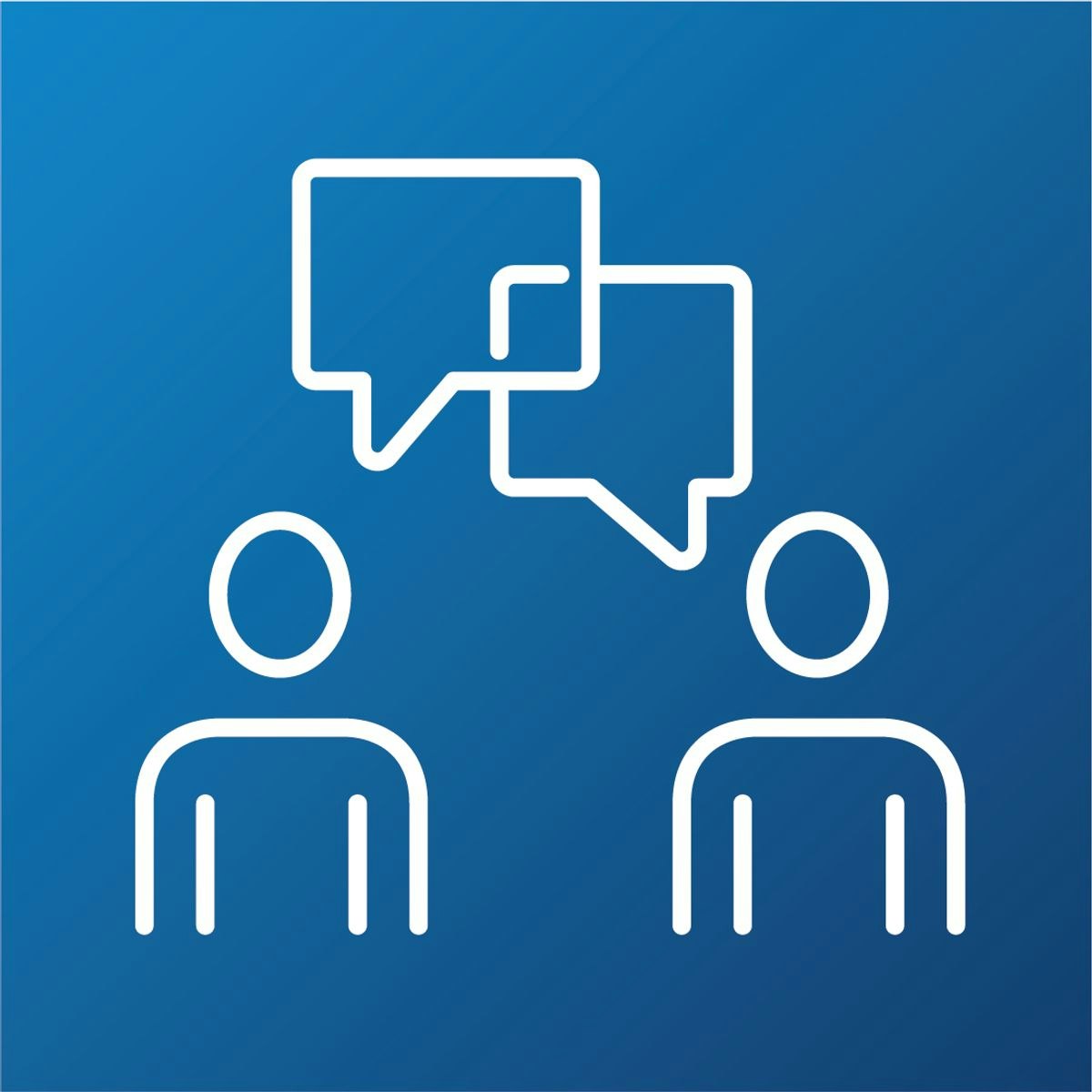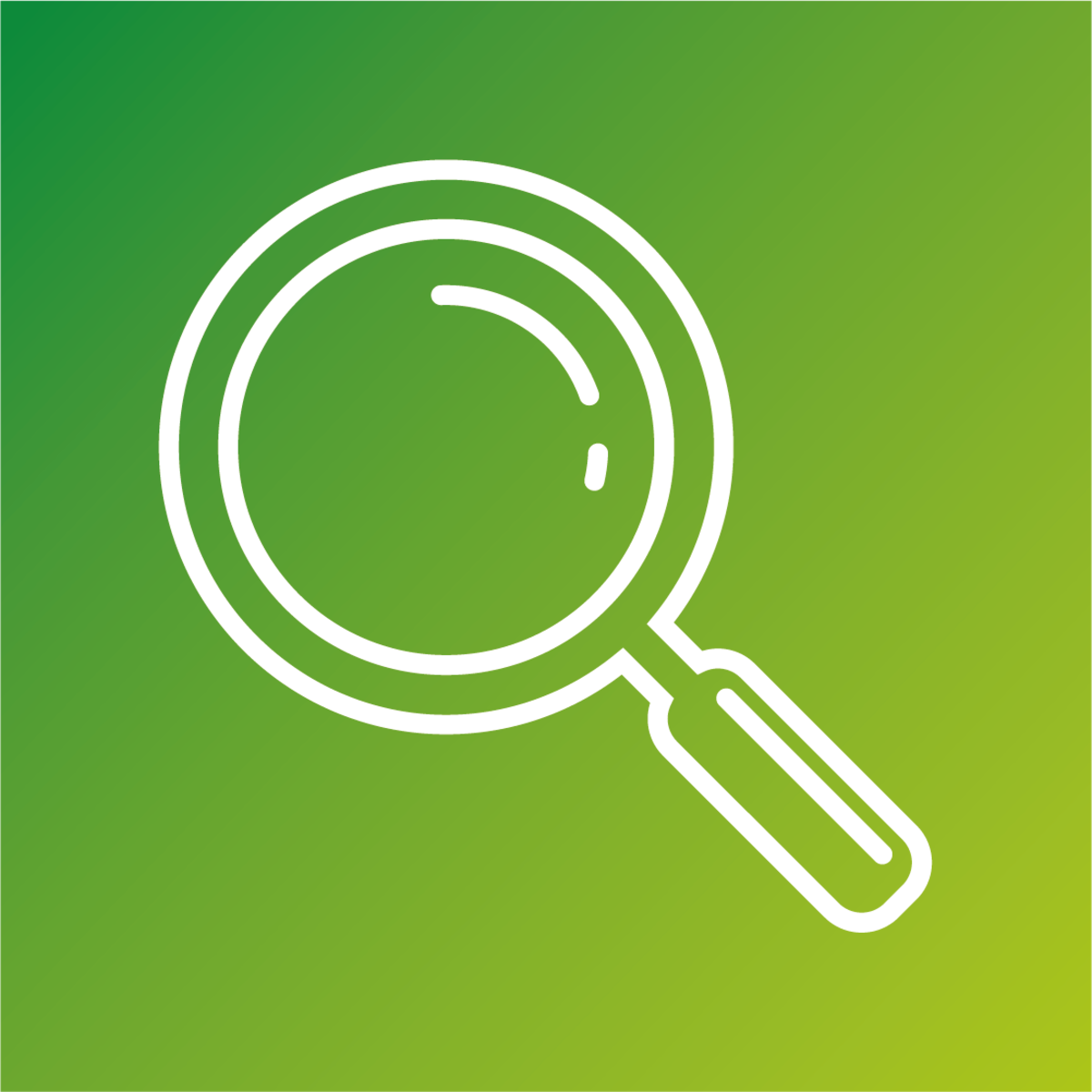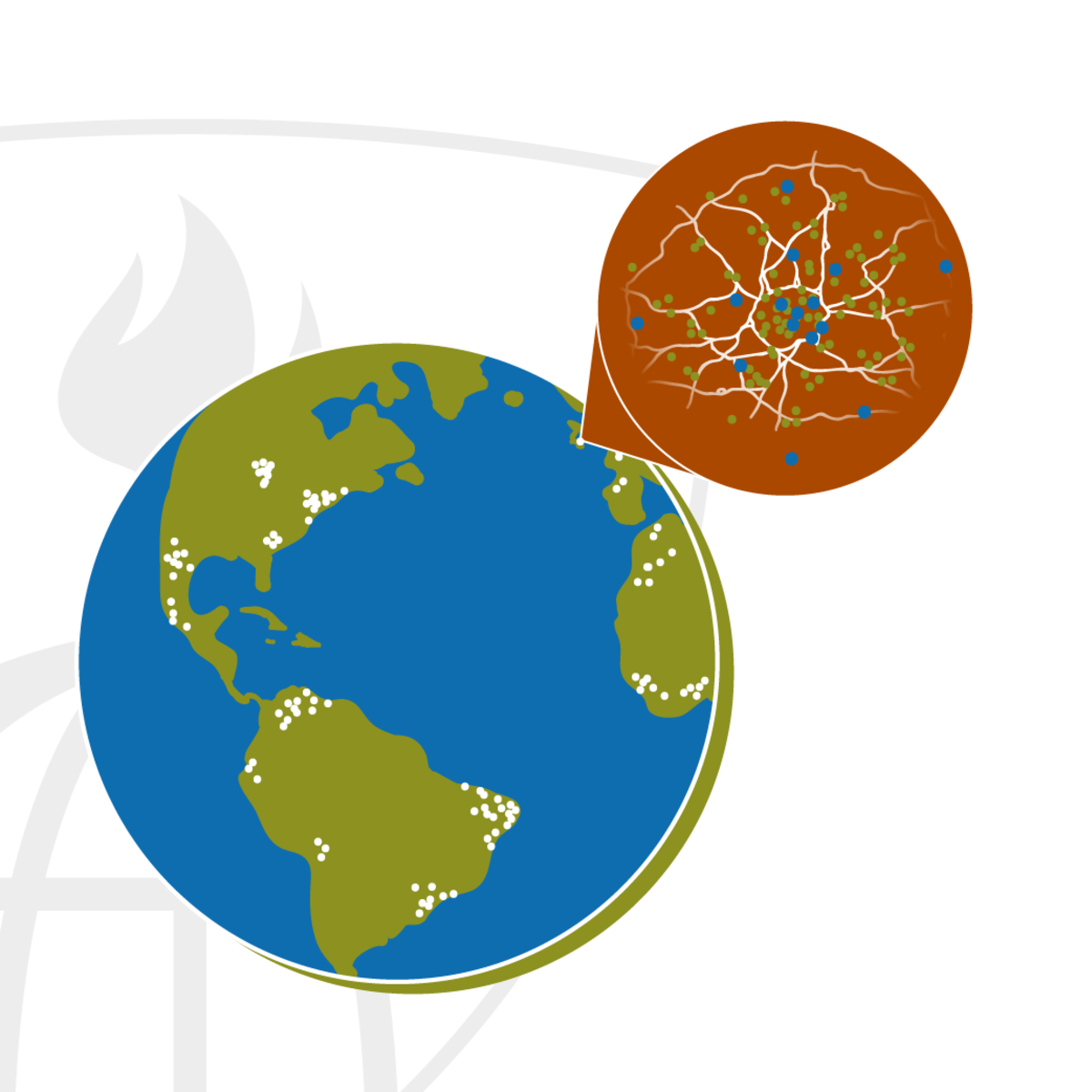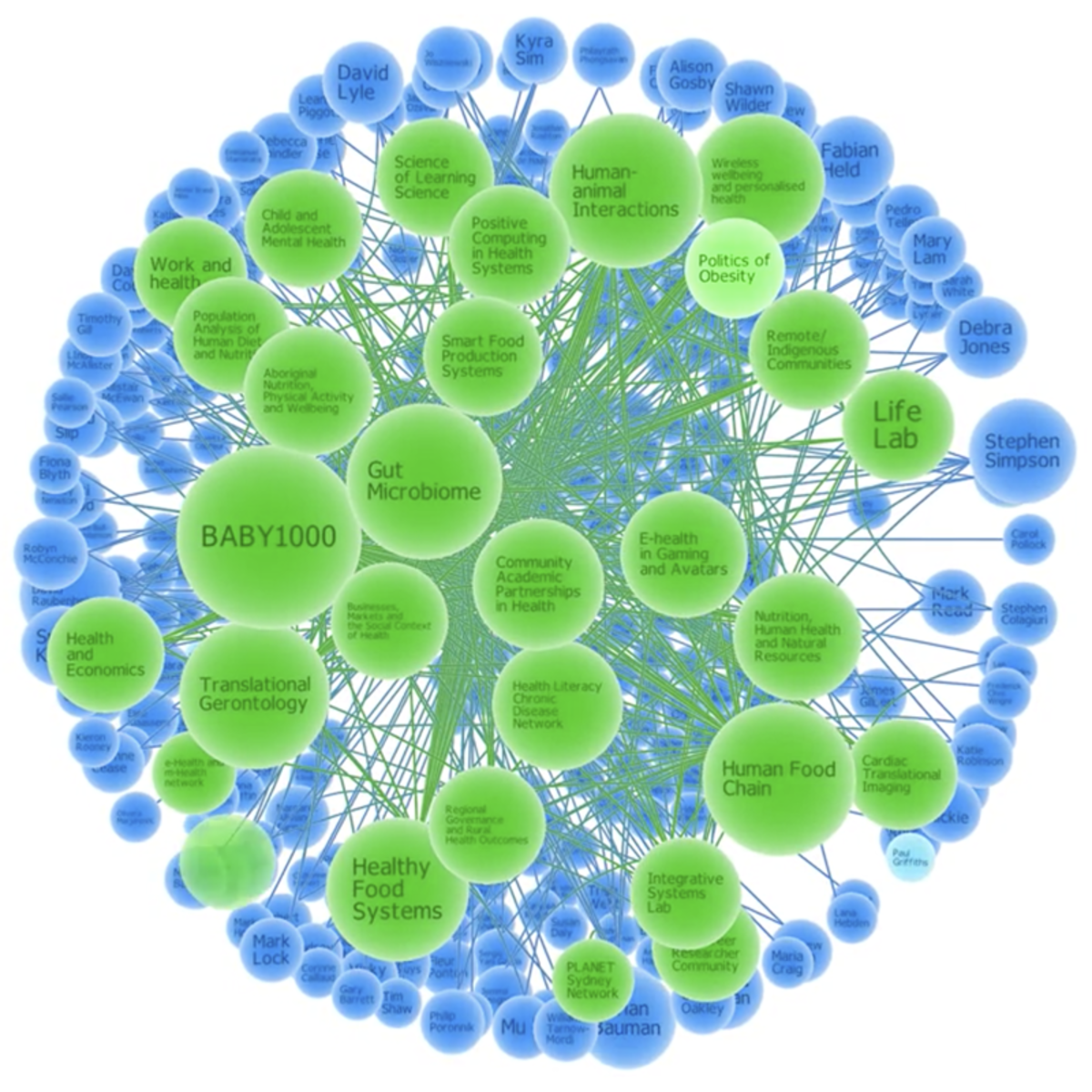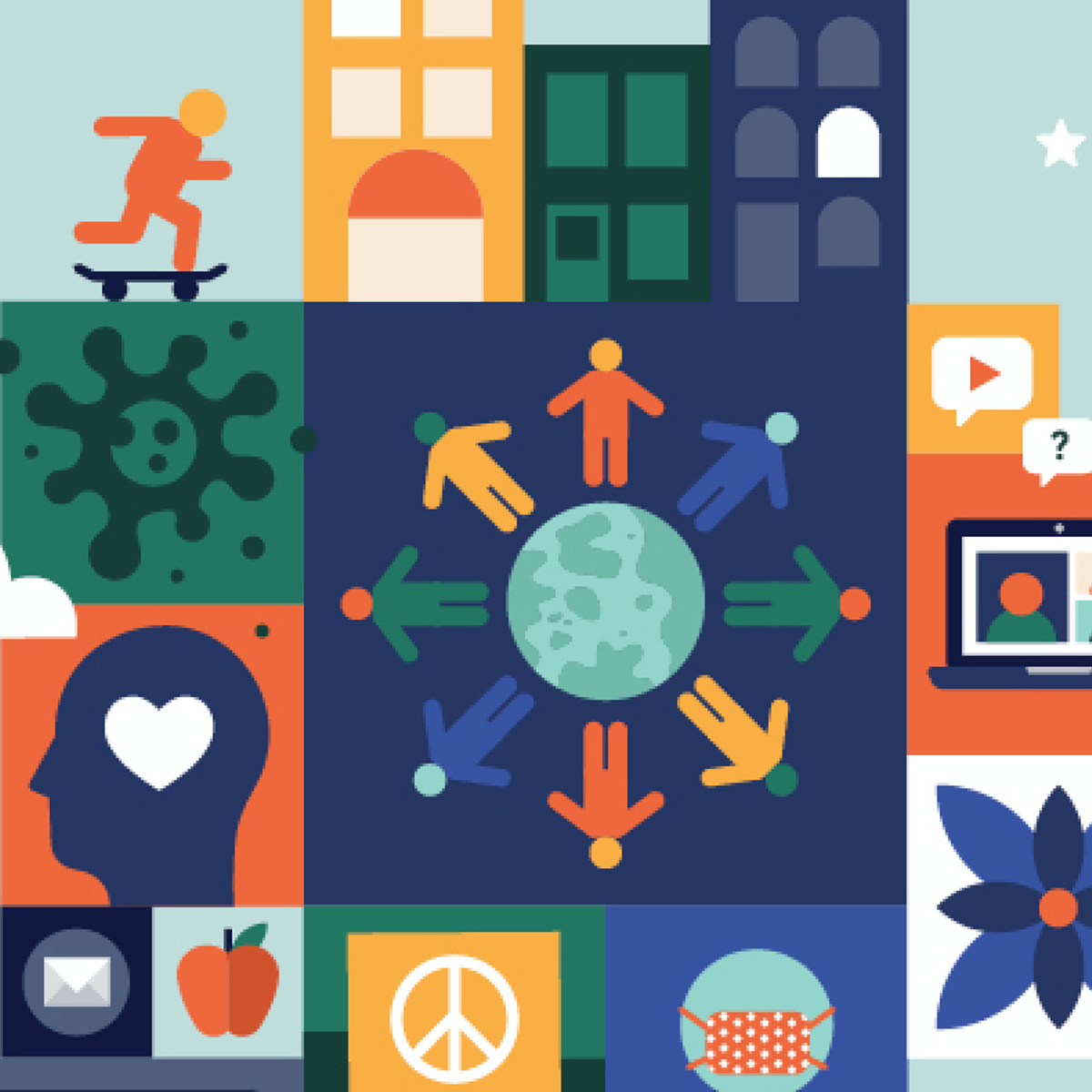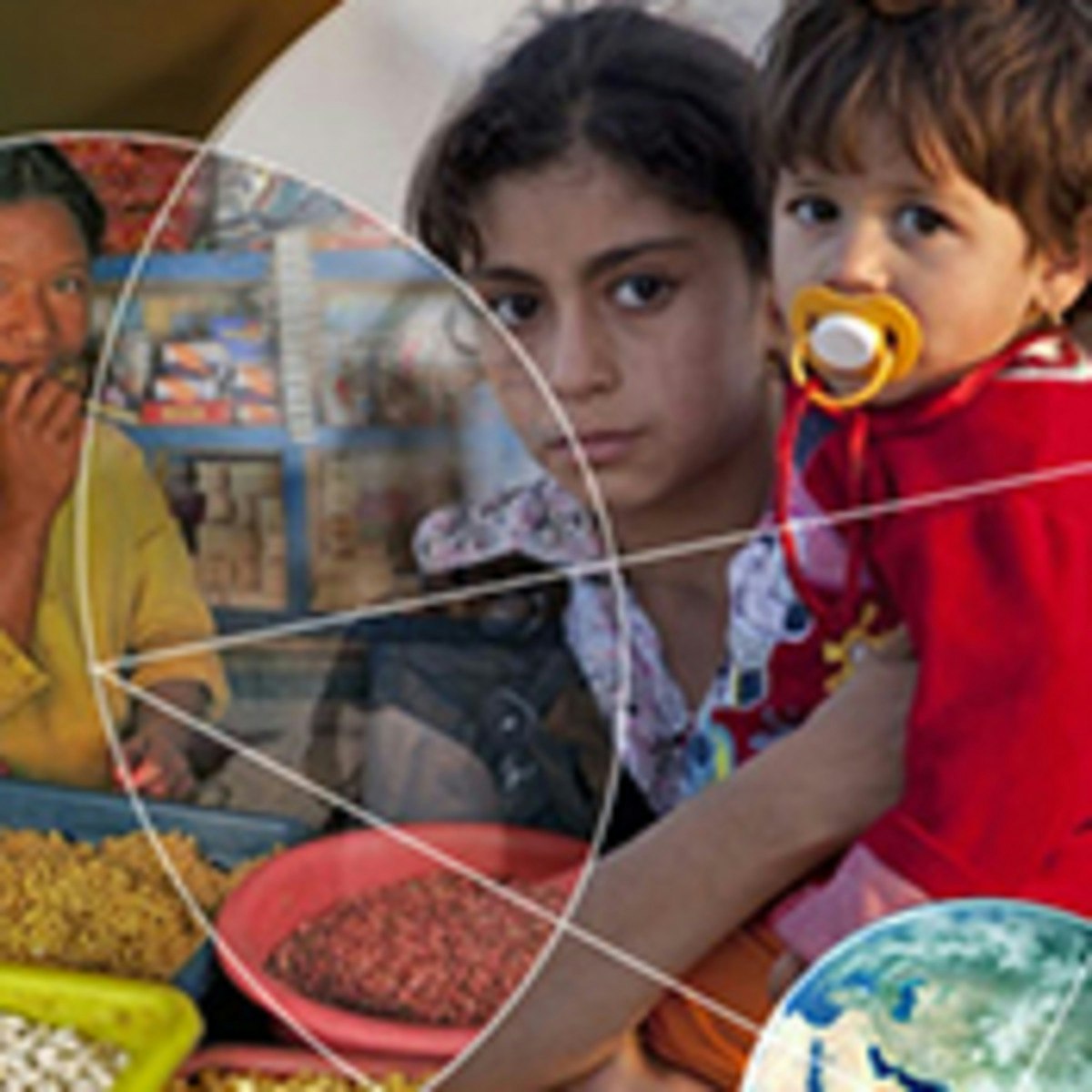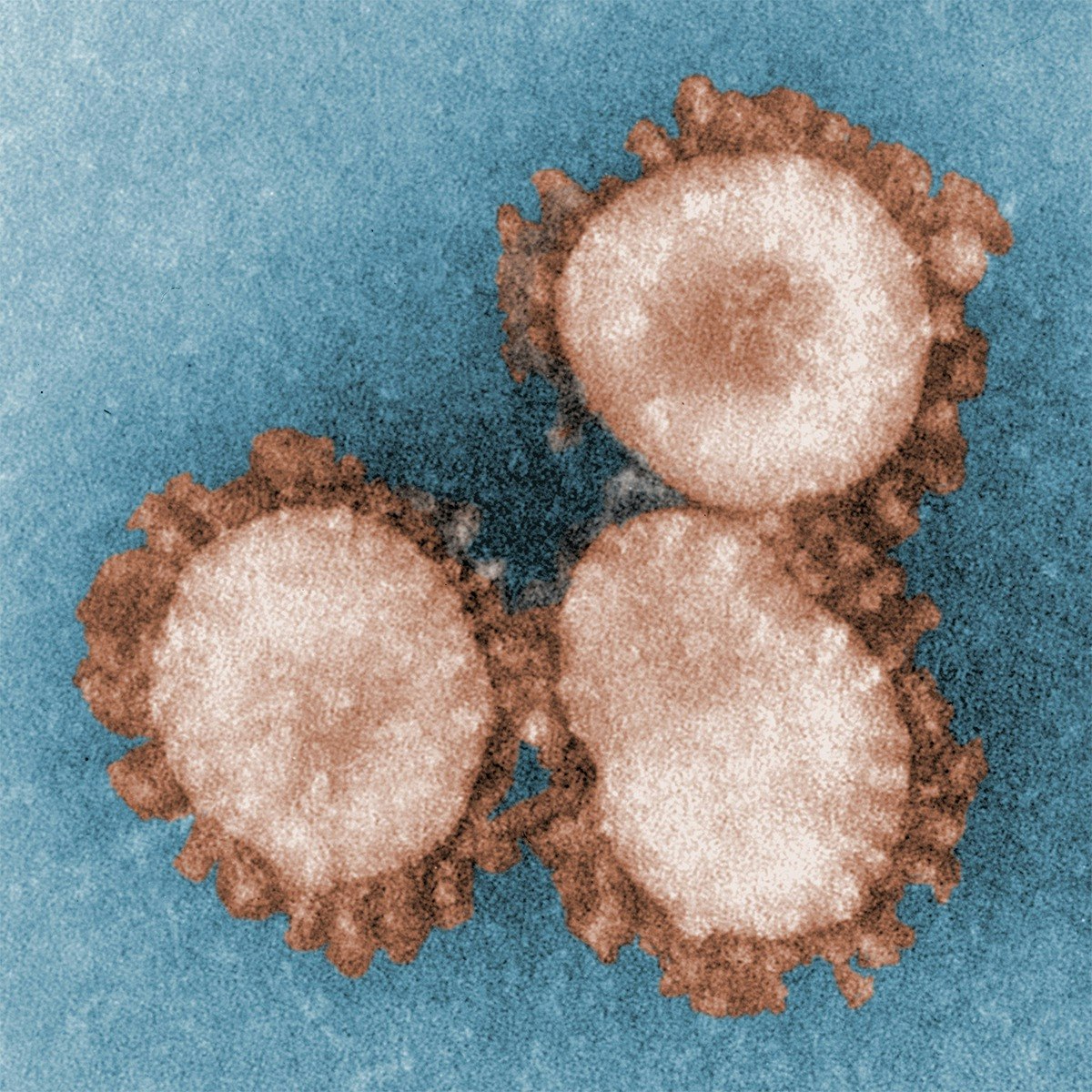Health Communications Specialist
Health Communications Specialist
Health Communications Specialists play a vital role in shaping public understanding of health issues and promoting healthy behaviors. They are skilled professionals who bridge the gap between complex health information and the diverse audiences who need it, crafting messages that inform, influence, and motivate positive health decisions. This field combines principles from public health, communication studies, marketing, and behavioral science to achieve specific health objectives, from increasing vaccination rates to encouraging preventative screenings.
Working in health communications can be incredibly rewarding. You'll have the chance to design impactful campaigns that address critical public health challenges, use creative strategies to reach diverse communities, and see the tangible results of your work in improved community well-being. It's a dynamic field that constantly evolves with new technologies and communication approaches, offering continuous learning and opportunities for innovation.
Introduction to Health Communications Specialist
What is Health Communications?
Health communication is the study and practice of communicating promotional health information, such as in public health campaigns, health education, and between doctor and patient. Its primary objective is to influence personal health choices by improving health literacy and understanding. Specialists in this area use communication strategies to inform and influence individual and community decisions that enhance health.
The field is inherently interdisciplinary, drawing knowledge from public health, social marketing, psychology, education, and communication theory. Effective health communication relies on understanding not just the health issue itself, but also the audience's beliefs, culture, attitudes, and access to information. It aims to make health information accessible, relevant, and easy to understand for everyone.
Ultimately, the goal is to improve health outcomes and reduce health disparities. This involves creating clear, accurate, and engaging messages delivered through appropriate channels to reach specific audiences effectively. Success is measured not just by message reach, but by its impact on knowledge, attitudes, and behaviors.
A Brief History
The roots of health communication can be traced back to early public health efforts, often involving simple informational posters or pamphlets about hygiene or infectious diseases. Early campaigns focused primarily on disseminating basic health facts. Over time, the field grew more sophisticated, incorporating insights from social sciences and marketing.
Significant milestones include large-scale campaigns responding to major public health crises, such as efforts to combat tuberculosis, polio, and later, HIV/AIDS. These events highlighted the critical need for strategic, well-researched communication to manage public fear, counter misinformation, and promote protective behaviors. The rise of mass media—radio, television, and eventually the internet—revolutionized the reach and methods of health communication.
Today, health communication leverages advanced audience segmentation, tailored messaging, digital platforms, and sophisticated evaluation techniques. It has evolved from simple information provision to a strategic function essential for addressing complex health challenges like chronic diseases, pandemics, and health inequities.
Where Do They Work?
Health Communications Specialists find employment across a wide range of sectors. Government agencies at the local, state, and federal levels are major employers. Organizations like the Centers for Disease Control and Prevention (CDC) and the National Institutes of Health (NIH) rely heavily on these specialists to disseminate research findings and public health guidance.
Non-profit organizations and advocacy groups, such as the American Heart Association, the World Health Organization (WHO), or local community health centers, also employ numerous health communicators to advance their specific health missions. Hospitals, clinics, and large healthcare systems need specialists to manage internal and external communications, patient education materials, and community outreach programs.
The private sector offers opportunities as well, particularly within pharmaceutical companies, health insurance providers, and specialized health communication consulting firms. These roles often involve marketing health products or services, developing corporate wellness programs, or providing communication expertise to various clients.
Impact on Public Health
Effective health communication is a cornerstone of successful public health initiatives. By translating complex science into actionable advice, specialists empower individuals to make informed decisions about their health and well-being. This contributes directly to disease prevention, management of chronic conditions, and adoption of healthier lifestyles.
Health communication campaigns play a crucial role in addressing health disparities by tailoring messages and strategies to reach underserved or marginalized populations. Culturally competent communication can help build trust and overcome barriers to accessing care and health information, promoting greater health equity. Information from the CDC highlights its importance in achieving public health goals.
Furthermore, health communication supports policy advocacy by raising public awareness and mobilizing support for health-related legislation or regulations. During public health emergencies, clear, timely, and trustworthy communication is essential for managing crises, coordinating response efforts, and maintaining public calm and cooperation.
Core Responsibilities of Health Communications Specialists
Crafting Health Campaigns
A central task for Health Communications Specialists is designing and implementing public health campaigns. This process begins with thorough research to understand the health issue, the target audience, and the communication environment. Based on this research, specialists develop strategic plans outlining campaign goals, objectives, key messages, and chosen communication channels.
They create a variety of communication materials, which might include brochures, websites, social media content, public service announcements (PSAs), videos, and educational toolkits. Crafting compelling narratives and clear calls-to-action is essential. The messages must be accurate, culturally appropriate, and tailored to resonate with the intended audience.
Implementation involves disseminating these materials through selected channels and monitoring the campaign's progress. This requires careful coordination and often involves working with partners like community organizations, media outlets, or healthcare providers to maximize reach and impact.
These courses offer insights into planning and executing health promotion initiatives.
Navigating Crises
During public health emergencies like pandemics, disease outbreaks, or natural disasters, Health Communications Specialists are on the front lines. Their role is critical in providing timely, accurate, and actionable information to the public, stakeholders, and partner organizations. This involves quickly synthesizing complex information and communicating it clearly and calmly.
Crisis communication requires developing strategies to manage uncertainty, address public fears, and combat misinformation or rumors. Specialists often serve as spokespeople or prepare leadership for media briefings. They monitor public sentiment and media coverage to adapt messaging as the situation evolves.
Maintaining trust and credibility is paramount. This involves transparency, acknowledging uncertainty when necessary, and ensuring consistency in messaging across different channels and spokespersons. Effective crisis communication can significantly impact public cooperation with health recommendations and overall response effectiveness.
Developing skills in crisis communication is crucial. These online courses provide foundational knowledge for communicating effectively during public health emergencies.
Understanding the Audience
Effective health communication is audience-centered. Specialists invest significant effort in understanding the diverse groups they aim to reach. This involves audience segmentation, dividing a broad population into smaller subgroups based on shared characteristics like demographics, health behaviors, beliefs, values, or information-seeking habits.
Formative research, such as surveys, interviews, and focus groups, is used to gain deep insights into the target audience's knowledge, attitudes, practices, and communication preferences. This research informs message development, ensuring that content is relevant, relatable, and addresses the specific needs and concerns of the audience.
Tailoring messages goes beyond language translation; it involves framing information in ways that align with the audience's cultural context and lived experiences. Understanding factors like health literacy levels is crucial to ensure messages are accessible and easily understood by everyone, regardless of their educational background or familiarity with health topics.
This course focuses specifically on connecting with varied audiences during health crises.
Measuring Success
Evaluating the effectiveness of health communication efforts is essential for accountability and continuous improvement. Specialists use various methods to assess whether communication strategies are achieving their intended goals. This starts with pre-testing messages and materials with members of the target audience before full implementation to identify potential issues and refine content.
During and after a campaign, specialists track key performance indicators (KPIs). These metrics can include reach (how many people were exposed to the message), engagement (likes, shares, comments on social media), website traffic, media mentions, and changes in knowledge or awareness levels measured through surveys.
Ultimately, the goal is often to influence behavior change (e.g., increased vaccination rates, adoption of preventative measures) or improve health outcomes. Measuring these longer-term impacts can be complex but is crucial for demonstrating the value of health communication initiatives. Evaluation findings are used to refine future strategies and make data-driven decisions.
Understanding study design is fundamental to evaluating health interventions and communication campaigns.
Required Skills and Competencies
Bridging Science and Simplicity
A core competency for Health Communications Specialists is the ability to translate complex scientific and medical information into language that is clear, accurate, and easily understood by lay audiences. This requires a solid grasp of the underlying health concepts combined with exceptional writing and communication skills.
Specialists must simplify information without distorting the science or omitting crucial details. This involves avoiding jargon, using plain language principles, and structuring information logically. Understanding the principles of health literacy—the degree to which individuals can obtain, process, and understand basic health information—is vital for creating accessible materials.
This balancing act requires careful attention to detail and often involves collaborating closely with subject matter experts (like doctors or researchers) to ensure scientific accuracy while maintaining clarity and audience relevance.
These courses cover various aspects of public health and epidemiology, providing the scientific literacy needed in the field.
Cultural Sensitivity is Key
Health beliefs, practices, and communication styles vary significantly across different cultural groups. Health Communications Specialists must possess strong cultural competency to develop messages and strategies that are respectful, relevant, and effective for diverse populations. This involves understanding cultural norms, values, and potential barriers to health information or services.
Developing culturally sensitive communication requires moving beyond stereotypes and engaging directly with community members to understand their perspectives. It involves tailoring messages, imagery, and communication channels to align with cultural preferences and address specific community concerns.
Failure to consider cultural factors can lead to mistrust, misunderstanding, and ineffective campaigns, potentially exacerbating health disparities. Therefore, a commitment to equity and inclusion is fundamental to ethical and successful health communication practice.
This course explores strategies for promoting diversity and inclusion within healthcare settings, a crucial aspect of cultural competency.
Understanding the broader social factors influencing health is also key.
Visualizing Health Data
In an era of information overload, presenting data visually can significantly enhance understanding and impact. Health Communications Specialists increasingly need skills in data visualization to create compelling infographics, charts, graphs, and dashboards that communicate health statistics and trends effectively.
Good data visualization makes complex data accessible and engaging. It can help audiences quickly grasp key findings, compare trends, and understand risks or benefits. This requires not only technical skills with visualization tools but also an understanding of design principles and how people perceive visual information.
Specialists use visualization to support storytelling, illustrate the scale of a health issue, track progress towards goals, and make data-driven arguments more persuasive for both public audiences and policymakers.
Mastering Digital Tools
The communication landscape is increasingly digital. Proficiency in using various digital platforms is now essential for Health Communications Specialists. This includes managing websites, utilizing social media for outreach and engagement, developing email marketing campaigns, and potentially creating content for mobile apps.
Understanding the unique characteristics and best practices for each platform is crucial. Specialists need to know how to tailor content for different channels (e.g., short, visual posts for Instagram vs. informative articles for a blog) and how to use analytics tools to track performance and optimize digital strategies.
Staying current with emerging digital trends and technologies, such as podcasting, virtual reality, or AI-driven tools, is also important for maintaining effectiveness and reach in the evolving digital space. You can explore courses on digital marketing and social media to build these skills.
Formal Education Pathways
Undergraduate Foundations
A bachelor's degree is typically the minimum requirement for entry-level positions in health communication. Relevant majors include Communication, Public Health, Journalism, Marketing, or English. Some universities offer specific undergraduate tracks or minors in Health Communication.
Coursework often covers communication theory, public speaking, writing, research methods, media studies, and introduction to public health principles. Internships or volunteer experiences in health-related organizations are highly valuable for gaining practical skills and making professional connections.
An interdisciplinary approach can be beneficial. Combining a communication-focused major with coursework in biology, sociology, psychology, or statistics provides a well-rounded foundation for understanding both the science and the social context of health issues.
Master's Level Specialization
For many advanced roles and career progression, a master's degree is often preferred or required. The Master of Public Health (MPH) degree with a concentration in Health Communication, Health Promotion, or Social and Behavioral Sciences is a common and highly relevant pathway.
MPH programs typically provide rigorous training in epidemiology, biostatistics, health policy, environmental health, and program planning/evaluation, alongside specialized communication coursework. Other relevant master's degrees include an M.A. or M.S. in Communication, Health Communication, or Strategic Communication, which may offer a deeper dive into communication theory and campaign design.
Graduate programs often involve applied projects, thesis research, or practicum experiences, allowing students to develop specialized skills and build a professional portfolio. Choosing a program accredited by relevant bodies, like the Council on Education for Public Health (CEPH) for MPH programs, can be an indicator of quality.
These courses delve into specific public health challenges and approaches often covered in graduate studies.
Doctoral Research
A Ph.D. is typically pursued by those interested in academic careers (research and teaching) or high-level leadership roles in research institutions or government agencies. Doctoral programs in Health Communication, Public Health (often with a social/behavioral science focus), or related communication fields offer advanced training in research methodologies, theory development, and specialized areas of inquiry.
Ph.D. candidates conduct original research culminating in a dissertation that contributes new knowledge to the field. Research focus areas might include health behavior change theory, risk communication, media effects on health, communication inequalities, technology-mediated health communication, or policy communication.
Earning a doctorate requires a significant commitment of time and effort but opens doors to shaping the future direction of health communication research and practice.
Accreditation and Standards
While specific licensure isn't typically required for Health Communications Specialists (unlike clinical roles), educational program accreditation can be a marker of quality. For those pursuing an MPH, seeking programs accredited by the Council on Education for Public Health (CEPH) is common in the United States.
Accreditation signifies that a program meets established standards for curriculum, faculty qualifications, resources, and student outcomes. While not mandatory for employment, graduating from an accredited program can sometimes be preferred by employers, particularly in the public health sector.
Professional organizations also contribute to setting standards and promoting best practices within the field through conferences, publications, and ethical guidelines. Staying engaged with these organizations helps practitioners maintain high standards throughout their careers.
Digital Strategies in Health Communications
Personalization with AI
Artificial intelligence (AI) is beginning to influence health communication strategies. AI tools can analyze large datasets to identify patterns in health behaviors and communication preferences, potentially allowing for more highly personalized messaging tailored to individual needs and characteristics.
Chatbots powered by AI can provide automated responses to common health questions or guide users through health resources. Predictive analytics might help identify individuals at higher risk for certain conditions, allowing for targeted preventative communication. However, the use of AI also raises ethical concerns regarding data privacy, algorithmic bias, and the potential for manipulation.
As AI technology evolves, Health Communications Specialists will need to understand its capabilities and limitations, ensuring its use aligns with ethical principles and genuinely enhances communication effectiveness rather than replacing human judgment and empathy.
Combating Misinformation Online
The digital age has brought the challenge of widespread health misinformation and disinformation. Social media platforms, in particular, can rapidly spread inaccurate or harmful health claims. A key digital strategy for Health Communications Specialists is actively monitoring the online environment to identify emerging rumors or false narratives.
Strategies to combat misinformation include "pre-bunking" (educating audiences about manipulation tactics before they encounter false information), rapid response debunking with factual information, and collaborating with platform providers to flag or remove harmful content. Promoting media literacy skills among the public is also crucial, empowering individuals to critically evaluate health information they encounter online.
This requires vigilance, strategic messaging, and often, partnerships with fact-checking organizations and public health authorities to maintain a credible voice amidst the noise.
These courses touch upon understanding disease transmission and public health responses, contexts where misinformation is often prevalent.
Integrating with Telehealth
The rise of telehealth presents new opportunities and challenges for health communication. Specialists play a role in promoting telehealth services, educating patients on how to use virtual care platforms, and ensuring communication remains effective in a remote setting.
This includes developing clear instructions, patient portals with accessible health information, and strategies to maintain patient engagement and rapport through digital channels. Communication needs to address potential barriers to telehealth access, such as lack of technology or digital literacy, particularly among older adults or underserved populations.
Effective communication is key to integrating telehealth smoothly into healthcare delivery, ensuring patients feel comfortable and supported in virtual interactions with providers, and maximizing the benefits of remote care options.
Digital Campaign Metrics
Evaluating the success of digital health communication campaigns requires tracking specific metrics beyond traditional measures. Specialists monitor website analytics, including page views, time on site, bounce rates, and conversion rates (e.g., downloads of a health guide, registrations for a webinar).
Social media metrics include reach, impressions, engagement rate (likes, comments, shares), follower growth, and click-through rates on links. Email marketing effectiveness is measured by open rates, click-through rates, and unsubscribe rates. For mobile apps, downloads, active users, and in-app behavior are key indicators.
Analyzing these digital metrics provides insights into audience engagement, content performance, and overall campaign impact. This data allows specialists to make real-time adjustments to strategies, optimize content for different platforms, and demonstrate the return on investment for digital communication efforts.
Career Progression and Opportunities
Starting Out
Entry-level roles in health communication often involve supporting senior staff in campaign development and implementation. Common job titles include Communications Assistant, Health Education Coordinator, Public Information Assistant, or Program Associate. Responsibilities might include drafting content, managing social media accounts, assisting with event planning, or distributing materials.
These initial positions provide valuable experience in understanding the day-to-day operations of health communication programs. They offer opportunities to develop foundational skills in writing, research, project coordination, and working with different communication channels. Building a strong portfolio of work samples is important at this stage.
Networking within the field and seeking mentorship can help guide early career development. Focusing on gaining diverse experiences across different types of projects or health topics can broaden skill sets and open doors to future opportunities.
Mid-Career Advancement
With several years of experience, Health Communications Specialists can advance to mid-level roles with greater responsibility and autonomy. Titles might include Communications Specialist, Health Communications Manager, Campaign Manager, Digital Strategist, or Media Relations Specialist. These roles often involve leading specific projects or campaigns.
Responsibilities typically expand to include strategic planning, budget management, supervising junior staff or interns, developing more complex communication materials, and evaluating program effectiveness. Specialization in areas like crisis communication, digital marketing, health literacy, or a specific health topic (e.g., chronic disease, maternal health) often occurs at this stage.
Pursuing advanced certifications or a master's degree can facilitate advancement. Strong leadership, strategic thinking, and project management skills become increasingly important for success in mid-career positions.
Reaching Leadership
Senior leadership positions in health communication involve overseeing entire communication departments or large-scale initiatives. Titles can include Director of Communications, Chief Communications Officer, Vice President of Public Affairs, or Senior Health Scientist (Communication). These roles focus on setting strategic direction, managing large teams and budgets, and representing the organization externally.
Leaders in the field often have extensive experience, advanced degrees (MPH, Ph.D., or MBA), and a proven track record of impactful communication programs. They need strong leadership, strategic vision, political acumen, and the ability to navigate complex organizational and stakeholder environments.
These roles involve shaping organizational communication policy, advising executive leadership, managing high-stakes communication challenges, and contributing to the overall mission and reputation of the organization.
Alternative Paths
Beyond traditional employment structures, Health Communications Specialists can pursue opportunities in consulting or freelance work. Consultants may work for specialized health communication agencies or establish their own practices, providing expertise to a variety of clients, including government agencies, non-profits, and private companies.
Freelancing offers flexibility and the ability to work on diverse projects. Freelancers might specialize in specific skills like writing, graphic design, social media management, or campaign evaluation. This path requires strong self-discipline, business development skills, and a robust professional network.
These alternative paths allow experienced professionals to leverage their expertise in different ways, often offering greater autonomy and variety in their work.
Ethical Challenges in Health Communications
Accuracy vs. Urgency
A significant ethical dilemma, particularly during public health crises, is balancing the need for rapid communication with the imperative of ensuring accuracy. Releasing information quickly can save lives, but disseminating unverified or incomplete information can erode trust and cause harm.
Specialists must navigate this tension carefully, establishing clear protocols for information verification and acknowledging uncertainty transparently when necessary. Ethical practice requires prioritizing accuracy and public well-being over speed or organizational pressures.
This challenge underscores the importance of strong relationships with subject matter experts and a commitment to rigorous fact-checking processes, even under tight deadlines.
Targeting Vulnerable Groups
While tailoring messages to specific audiences is key to effectiveness, targeting vulnerable populations raises ethical considerations. Communication efforts must avoid stigmatizing individuals or groups based on their health status, socioeconomic background, race, ethnicity, or other characteristics.
Ethical communication ensures that messages are empowering, respectful, and promote equity. It involves engaging communities in the design process (participatory approaches) to ensure messages resonate positively and address their actual needs and concerns, rather than imposing external assumptions.
Care must be taken to ensure that targeted communication does not inadvertently exacerbate health disparities by creating barriers or reinforcing negative stereotypes.
Understanding the social context of health is vital for ethical communication.
Organizational vs. Public Good
Health Communications Specialists may face situations where their organization's goals (e.g., promoting a specific service, protecting reputation, meeting funding requirements) potentially conflict with broader public health interests or principles of unbiased communication.
For example, pressure might arise to downplay risks associated with a product or service, or to frame information in a way that primarily benefits the organization rather than providing balanced information for decision-making. Navigating these conflicts requires strong ethical judgment and advocacy for communication practices centered on public well-being.
Maintaining professional integrity often involves adhering to ethical codes set by professional organizations and prioritizing transparency and honesty in all communications.
Global Health Equity
In global health contexts, communication efforts must address significant disparities in resources, access to information, technological infrastructure, and cultural contexts. Ethical challenges include ensuring that communication strategies do not perpetuate existing inequities or impose Western-centric views.
Developing culturally appropriate messages for diverse global audiences requires deep local understanding and collaboration. Ensuring equitable access to communication channels, particularly in low-resource settings, is another major consideration. Language barriers and varying literacy levels must also be carefully addressed.
Ethical global health communication prioritizes partnership, capacity building within local communities, and strategies that empower rather than dictate, working towards health equity on a global scale.
These courses provide perspectives on global health challenges and approaches.
Global Health Communications Specialist Roles
International Organizations
Major international organizations like the World Health Organization (WHO), UNICEF, the World Bank, and various international NGOs (e.g., Doctors Without Borders, PATH) employ Health Communications Specialists to support global health programs. Roles often involve developing communication strategies for multi-country initiatives, coordinating campaigns across diverse settings, and liaising with international partners.
These positions require strong cross-cultural communication skills, adaptability, and often, fluency in multiple languages. Work may involve addressing global health priorities such as infectious disease control, maternal and child health, nutrition, or non-communicable diseases on an international scale.
Specialists in these roles help bridge communication gaps between global policy initiatives and local implementation, ensuring messages are relevant and effective in different national and cultural contexts.
Adapting Messages Locally
A major challenge in global health communication is effectively adapting messages and strategies for diverse local contexts. Direct translation is rarely sufficient; messages must be culturally adapted to resonate with local beliefs, values, and social norms. This requires understanding local languages, idioms, communication preferences (e.g., oral vs. written, preferred media channels), and health literacy levels.
Effective localization involves working closely with local partners and community members throughout the communication development process. Imagery, color choices, and storytelling approaches must be carefully considered to ensure cultural appropriateness and avoid unintended negative connotations.
Overcoming barriers related to technology access, infrastructure limitations, and political sensitivities in different regions are also critical aspects of localization in global health communication.
Learning from Pandemics
Recent pandemics, notably COVID-19, have underscored the critical importance of global health communication and coordination. Case studies from responses to COVID-19, Ebola, Zika, and other outbreaks provide valuable lessons about effective (and ineffective) communication strategies in managing global health threats.
These events highlight the challenges of combating misinformation across borders, coordinating consistent messaging among diverse international actors, adapting strategies rapidly as scientific understanding evolves, and addressing vaccine hesitancy and public trust issues on a global scale.
Analyzing communication successes and failures during past pandemics informs preparedness planning and strengthens the capacity of the global community to respond effectively to future health emergencies through coordinated and culturally sensitive communication.
Courses examining epidemics and pandemic responses offer valuable insights.
Salary Variations
Compensation for Health Communications Specialists varies significantly across different countries and regions. Factors influencing salary include the country's cost of living, the type of employing organization (government, NGO, private sector), the individual's level of education and experience, and specific job responsibilities.
Salaries in international organizations or multinational corporations may differ substantially from those in local NGOs or government agencies within a specific country. It's difficult to provide precise global benchmarks, as data availability and comparability are limited.
Individuals seeking global health communication roles should research salary expectations specific to the country and sector they are interested in. Resources like international job boards or professional networks focused on global health may provide some insights into regional compensation levels.
Future Trends Impacting Health Communications Specialists
Climate Change and Health
The health impacts of climate change—such as heat-related illnesses, respiratory problems from air pollution, vector-borne diseases, and mental health effects—are becoming increasingly recognized. Health Communications Specialists will play a crucial role in educating the public and policymakers about these risks.
Communicating the links between climate change and health requires translating complex environmental science into relatable health messages. It also involves promoting adaptive behaviors (e.g., staying cool during heatwaves) and advocating for policies that mitigate climate change and protect public health.
This emerging area will demand new communication strategies to address eco-anxiety, promote sustainable behaviors, and ensure equitable communication about climate-related health risks, particularly for vulnerable populations.
Evolving Health Literacy
How people access, understand, and use health information is constantly changing, influenced by factors like digital technology adoption, educational levels, and generational differences. Health Communications Specialists must adapt their strategies to address varying levels of health literacy and evolving information-seeking behaviors.
The digital divide remains a challenge, requiring strategies that reach those with limited internet access or digital skills. Younger generations may rely more heavily on social media or influencers for health information, necessitating different communication approaches than those effective for older adults. Ensuring clarity, simplicity, and accessibility across all communication materials remains paramount.
Ongoing research into health literacy trends and audience preferences is essential for developing effective communication that meets people where they are.
AI in Content Creation
Artificial intelligence offers potential efficiencies in health communication, such as assisting with drafting initial content, summarizing research, translating materials, or analyzing audience feedback. AI tools could potentially help personalize messages at scale or identify emerging health trends from online conversations.
However, reliance on AI also carries risks. AI-generated content may lack nuance, cultural sensitivity, or empathy. Algorithmic bias could lead to inequitable communication, and the potential for AI to generate convincing misinformation poses a significant threat. Over-reliance on AI could also impact job roles within the field.
Specialists will need to learn how to leverage AI tools responsibly, using them to augment rather than replace human judgment, creativity, and ethical oversight in the communication process.
Holistic Health Messaging
There is a growing recognition of the interconnectedness of physical and mental health. Future health communication efforts are likely to increasingly adopt a holistic approach, integrating messaging about mental well-being, stress management, and emotional health into broader health promotion campaigns.
This involves reducing stigma associated with mental health issues and promoting help-seeking behaviors. Communication strategies will need to address the social determinants that impact both physical and mental health, advocating for integrated care models and community-based support systems.
Crafting messages that resonate with the whole person—addressing emotional, social, and physical aspects of health—will be key to promoting overall well-being in the future.
This resource provides context on mental health, a key aspect of holistic health.
Frequently Asked Questions
Can I enter this field without a public health degree?
Yes, it is possible to enter the field of health communication without a specific public health degree, especially at the entry level. Strong backgrounds in communication, journalism, marketing, English, or related social sciences are often valued. Demonstrable skills in writing, research, digital media, and understanding audiences are key.
However, for many roles, particularly in government agencies or non-profits focused purely on public health, a foundational understanding of public health principles (like epidemiology or health behavior theory) is highly beneficial. Completing relevant internships, volunteer work, or online courses in public health can help bridge knowledge gaps.
While entry is possible without an MPH, pursuing a master's degree, especially an MPH with a relevant concentration, is often advantageous for career advancement and accessing more specialized or senior roles.
How does this role differ from PR specialists?
While there is overlap, particularly in skills like writing and media relations, the core focus differs. Health Communications Specialists primarily aim to influence health behaviors and improve health outcomes, often working in the public interest. Their work is heavily grounded in public health principles and behavioral science.
Public Relations (PR) specialists typically focus more broadly on managing the reputation and image of an organization or individual. While PR in a health context exists (e.g., hospital PR), its goals might center more on organizational branding, stakeholder relations, or crisis management from a corporate perspective rather than solely on public health behavior change.
In essence, health communication is a specialized field within or closely related to public health, whereas PR is a broader communication discipline applicable across many industries.
What's the job growth projection?
The job outlook for Health Communications Specialists is generally positive. The U.S. Bureau of Labor Statistics (BLS) projects growth for related occupations. For example, employment for Health Education Specialists is projected to grow 7 percent from 2022 to 2032, about as fast as the average for all occupations.
Demand is driven by ongoing efforts to improve public health outcomes, address chronic diseases, respond to health emergencies, and reduce healthcare costs through prevention. The increasing use of digital platforms for health information also creates opportunities for specialists skilled in online communication strategies.
Growth may vary depending on the sector (e.g., government funding levels, private sector investment in health) and geographic region.
Is clinical experience required?
No, clinical experience (like working directly with patients as a nurse or doctor) is generally not a requirement to become a Health Communications Specialist. The role focuses on communication strategies rather than providing clinical care.
However, a good understanding of the healthcare system, clinical settings, and patient experiences can be very beneficial. It helps specialists create more relevant and empathetic communications. Some roles, particularly within hospitals or health systems, might involve closer collaboration with clinical staff.
Individuals with prior clinical backgrounds who transition into health communication can leverage their unique insights into patient needs and clinical workflows.
How to transition from journalism?
Journalism provides many transferable skills valuable in health communication, including strong writing, research, interviewing, storytelling abilities, and understanding how to frame information for specific audiences. To transition successfully, focus on highlighting these skills.
You may need to build specific knowledge in public health principles, health behavior theories, and campaign planning/evaluation methods. Taking online courses through platforms like OpenCourser's Health & Medicine section, pursuing a certificate program, or even an MPH can bridge this gap.
Networking with professionals in the health communication field, tailoring your resume and portfolio to highlight relevant experiences (e.g., health reporting), and seeking informational interviews can help facilitate the transition.
Typical workplace settings?
Health Communications Specialists work in diverse environments. Common settings include:
- Government Agencies: Federal (CDC, NIH, FDA), state, and local public health departments.
- Non-Profit Organizations: Health advocacy groups (American Cancer Society), foundations, community health centers, professional associations (APHA).
- Healthcare Systems: Hospitals, clinics, managed care organizations.
- Academia: Universities and research institutions (often combining communication roles with teaching or research).
- Private Sector: Pharmaceutical companies, health insurance companies, biotech firms, advertising agencies, and specialized health communication consulting firms.
Helpful Resources
To further explore the field of Health Communications, consider these resources:
- CDC Gateway to Health Communication & Social Marketing: Offers tools, guidelines, and resources from the U.S. Centers for Disease Control and Prevention.
- American Public Health Association (APHA): The Public Health Education and Health Promotion (PHEHP) section often features relevant content and networking opportunities.
- Society for Health Communication: A professional organization dedicated to advancing the field through research, education, and practice.
- OpenCourser Communication Studies: Explore a wide range of online courses in communication, public speaking, and media studies to build foundational skills.
- OpenCourser Public Health: Discover courses covering various public health topics, from epidemiology to health policy.
Embarking on a career as a Health Communications Specialist offers a path to making a meaningful difference in people's lives and community health. It requires a blend of scientific understanding, creative communication skills, cultural sensitivity, and a passion for improving well-being. While challenging, it's a dynamic and rewarding field with diverse opportunities for growth and impact. Exploring resources like those on OpenCourser can help you build the necessary skills and knowledge for this vital profession.






